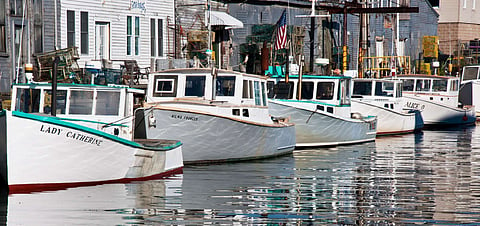

The University of Maine has launched the first-ever national assessment of seafood marketing practices in the United States.
The American Seafood Harvesters Marketing Practices Survey aims to bring attention to the role that seafood harvesters play in the nation's food systems and, eventually, inform future investments in the sector.
Funded by the U.S. Department of Agriculture (USDA) and NOAA Fisheries, the survey will contact 6,600 seafood harvesters across the United States.
University of Maine researchers say the survey is designed for any seafood harvester or business in the U.S. participating in a state or federal commercial fishery, who sells at least a portion of their catch directly to consumers, restaurants or institutions, or to dealers who identify them as the harvester.
The initiative follows an initial research project in 2021 which showed 11% of all seafood harvesters in the United States directly market their catch.
The Maine researchers say more data is urgently needed to ensure that the seafood sector is better understood and better taken into account.
"The commercial fishing sector in the U.S. is critically important to the economy, food security and cultural identity of many coastal communities. However, seafood often remains poorly integrated into efforts to strengthen local and domestic food systems," the researchers noted.
A key reason for this, the researchers say, is that unlike the agricultural sector, there is very little data on how seafood harvesters market their catch, making seafood marketing an "invisible" part of the food system.
"We often talk about how important data are for fisheries conservation and management. Data are also important for describing our nation's food systems and ensuring that seafood is part of the discussion," says Joshua Stoll, assistant professor of marine policy at the University of Maine, and principal investigator of the study.
The survey will not only shed light on the scale and range of direct marketing practices, but will have practical impact. This includes informing future investments, helping to develop technical support, and providing data for policy making.
Researchers say the survey will also identify impacts of new regulations on the commercial seafood sector in the United States.
The University of Maine will also make the survey results available for fishermen, researchers and policy-makers.
The survey period is open from March to June 2023. Eligible entities will receive a postcard in the mail informing them about the American Seafood Harvesters Marketing Practices Survey, together with a survey form with an individual ID and a link to access the survey online.
The School of Marine Sciences is the University of Maine's center of excellence for all aspects of marine-related research, education, and public service. The School offers undergraduate degrees in Marine Sciences (with the option of specializing in aquaculture, marine biology, or physical science) and graduate degrees in Marine Biology, Marine Policy, and Oceanography.
With more than 30 faculty members, the School of Marine Sciences represents the largest concentration of marine experts in the state of Maine and one of the strongest programs in the United States. The faculty have expertise in almost all areas of marine sciences, ranging from molecular biology and biotechnology to fisheries economics and anthropology, and from marine geology and coastal engineering to aquaculture, ecology, and oceanography.
